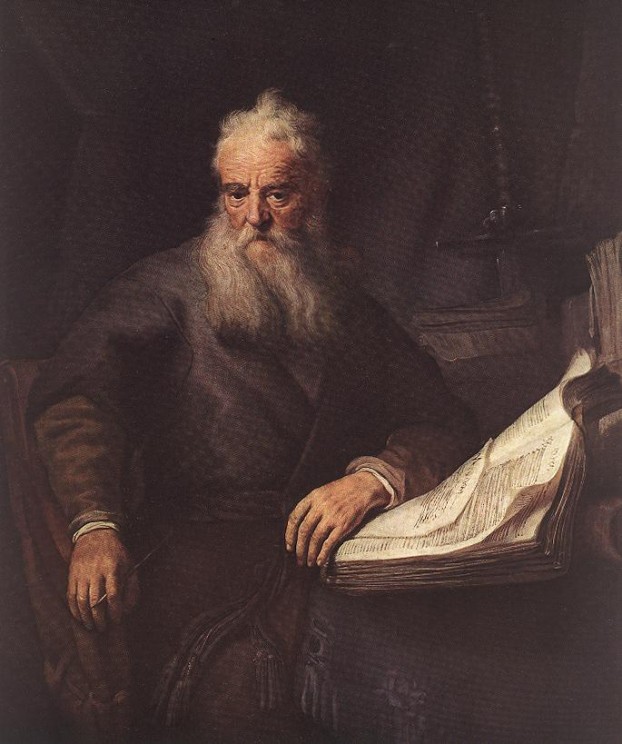This is the final in a four-part series on Christian epistemology titled “Radical faith meets radical doubt: a Christian epistemology for skeptics” by John G. Stackhouse, Jr.
By John G. Stackhouse, Jr.
Do Christians need the kind of radical faith that Thomas Reid, in the Scottish Enlightenment, and Alvin Plantinga, in our own time, offer as the best response to the pervasive skepticism of modernity?
Christians traditionally aver that the Bible gives us infallible truth. But wise Christians also acknowledge that God never promises infallible interpretation to any Christian or group of Christians. The Bible is the Word of God, but any interpretation we render is, unavoidably, an interpretation we render. As such, it is limited by our limitations and flawed by our flaws.
What about the Holy Spirit, then? Doesn’t the very presence of God guarantee truth to the believer? Again, the indwelling of every believer by the Holy Spirit is a precious truth, and the assurance God gives us of his love and care and, yes, guidance thereby is a treasure indeed. But the gift of the Holy Spirit has never entailed that every Christian will score 100% on every math test—or on/in any other test in life, either. Wherever we go—even with the Spirit of God—there we inevitably are.

Apostle Paul by Rembrandt. Public Domain via Wikimedia Commons.
The Apostle Paul comes to our aid at this point and reminds us that we walk by faith, not by sight (II Cor. 5:7), perhaps more profoundly than we knew. We walk, trusting our senses, trusting our memories, trusting our worldviews, and—in the face of all this doubt about all these good, but fallible, gifts of God—trusting God.
The fundamental truth here is that God called humanity to “fill the earth and subdue it, to have dominion” (Gen. 1:28) and to thereby work with him to make the world all it can be. It follows from the fact of this basic commandment that human beings can trust God to give us at least enough knowledge of the world to care for it properly, even as we try faithfully to keep learning more about it so we can care for it better.
Similarly, God called the Christian Church to “make disciples of all nations” (Matt. 28:19), and to thereby work with God to help humanity become all we can be. It likewise follows that we Christians can trust God to give us at least enough knowledge of ourselves and our fellow human beings to disciple each other properly, even as we try faithfully to learn more about ourselves and God so we can disciple each other better.
More particularly, God calls particular groups of people and particular individuals to particular ways of making shalom and making disciples. Modern societies feature such diverse elements as the various parts and forms of the state, the family, businesses, schools, health care facilities, churches, missionary agencies, mass entertainment and news media, and so on. These various instances of shalom-making and disciple-making have particular ways of knowing, and particular bodies of knowledge, that are best suited to the fulfillment of their mission. Again, then, God can be trusted to provide these institutions and individuals distinctively what they need, including what they need epistemically, to fulfill their callings.
So we can and should rejoice in the gracious providence of God, who always supplies our needs in order for us to fulfill God’s call upon our lives. God gives us, as we pray, “our daily bread”—in metaphorical terms of knowledge as well as in literal terms of nourishment.
At the same time, the Bible’s depiction of human limitations squares nicely with the history of skeptical philosophy, and prompts us to be humble enough to realize how little we know, how little we know about the accuracy and completeness of what we think we know, and how much we have to trust God to guide, correct, and increase what we know according to God’s good purposes.
Do we know enough to get to work and make shalom? Yes, we do.
Do we know enough to bear witness to the gospel and make disciples? Yes, we do.
Do we need to claim certainty in order to fulfill the mission of God in these days? No, we don’t.
Certainty isn’t on offer. But confidence—con fide (with faith)—is.
That should be enough for the Christian to get through today with joy and effectiveness. And that’s all that matters (Matt. 6:34).
John G. Stackhouse Jr. is the Sangwoo Youtong Chee Professor of Theology and Culture at Regent College, Vancouver, Canada. He is the author of Need to Know: Vocation as the Heart of Christian Epistemology.
Subscribe to the OUPblog via email or RSS.
Subscribe to only religion articles on the OUPblog via email or RSS.
The post Radical faith answers radical doubt appeared first on OUPblog.



When I was in college, one of my professors liked to say that what artists needed to learn is that discipline is freedom.
I have found this to be true over and over. Sticking to regular work habits, even when it is frustrating or inconvenient, is rewarding. Each day that I do this, I feel a fulfilling sense of accomplishment, and little by little my projects take shape and eventually become complete.
I'm working on this now! Real discipline *can't* be external punishment. It must come from within. And that's the hardest.